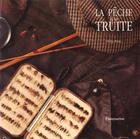-
Nombre de pages : (-)
-
Collection :
(-)
-
Genre :
(-)
-
Thème :
Non attribué
-
Prix littéraire(s) :
(-)
Résumé:
1945 was a chaotic year, both for the world and for Winston Churchill. The talismanic wartime leader had to deal with the death in April of his great ally and confidant Roosevelt. Soon afterwards, Churchill arrived at the Potsdam Conference expecting to broker peace with Stalin and Truman, only... Voir plus
1945 was a chaotic year, both for the world and for Winston Churchill. The talismanic wartime leader had to deal with the death in April of his great ally and confidant Roosevelt. Soon afterwards, Churchill arrived at the Potsdam Conference expecting to broker peace with Stalin and Truman, only to find himself unable to attend the final summit sessions following a stunning defeat in one of the most lopsided General Election results in history. Having spent his 'wilderness years' in the late 1930s warning of the dangers of diplomatic and military weakness and the growing menace of Nazism, Churchill found himself again in the position of herald, sounding the alarm about the Communist threat to the freedom that he and his Allies had won at such a cost. Churchill's Cold War is the story of his pivotal speech which defined the Iron Curtain as the new threat to world peace and inspired the faith in political freedom that would one day see it pulled down. This is the story of how, having saved the free world once, Churchill's vision helped save it a second time. It is also a portrait of the irrepressible man whose words changed history at a moment when many had prematurely marked a plot for him in the political graveyard.
Donner votre avis















